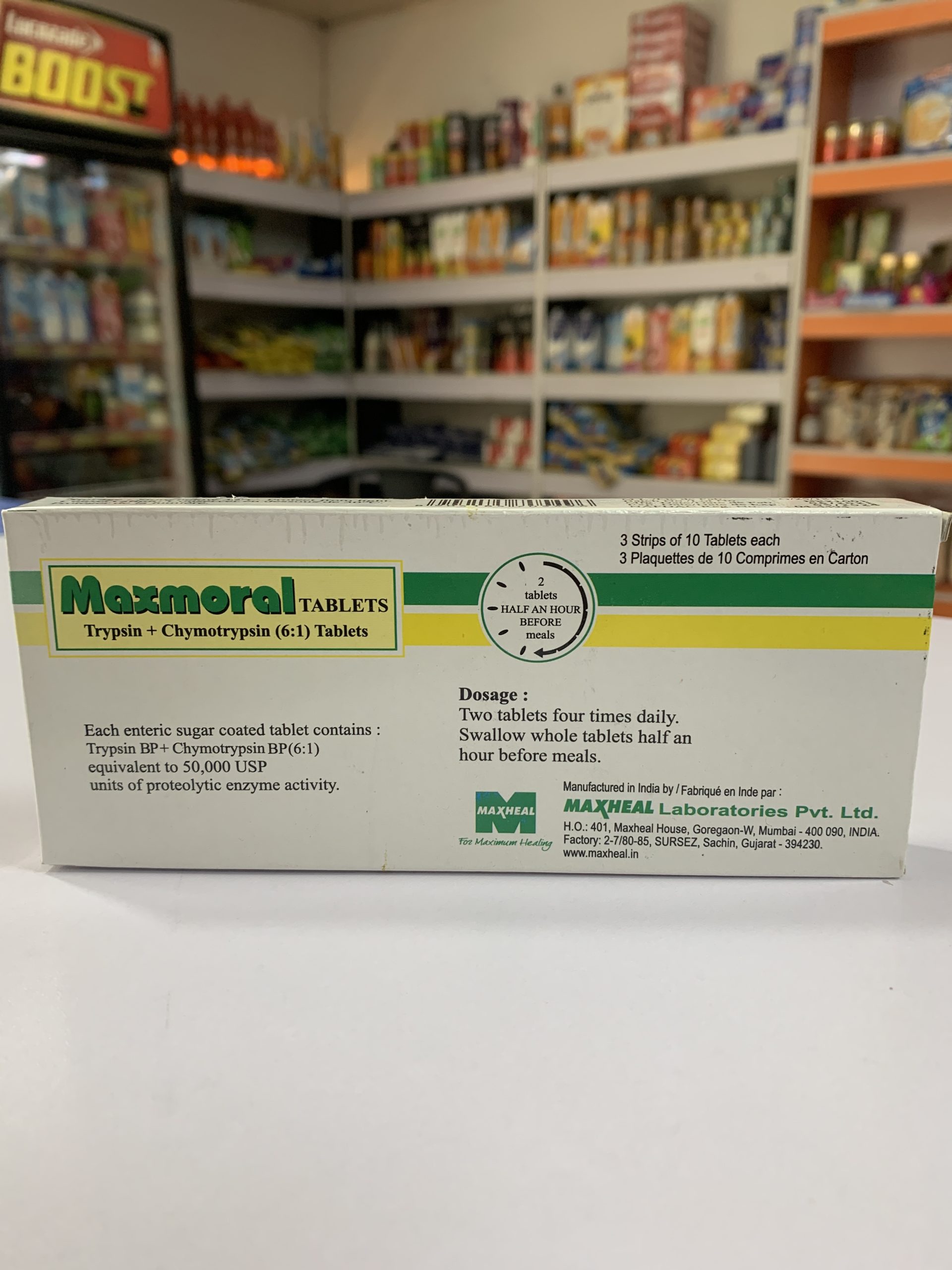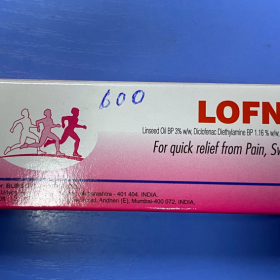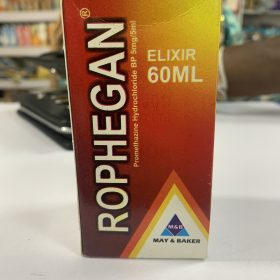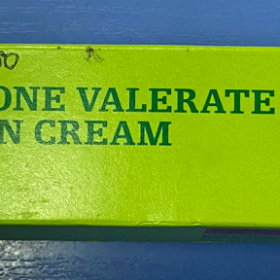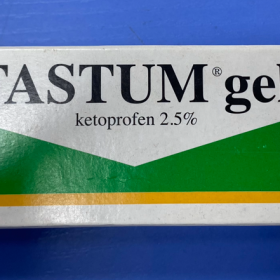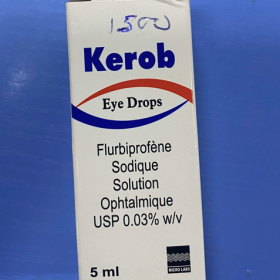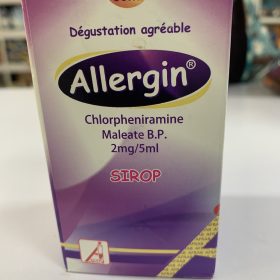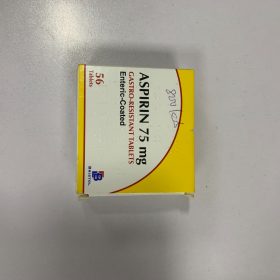- Your cart is empty
- Continue Shopping

Product
Maxmoral tablets
₦0
Trypsin + Chymotrypsin – Enzyme Combination for Inflammation and Wound Healing Trypsin and Chymotrypsin are enzyme preparations used for their anti-inflammatory and wound-healing properties. They are often prescribed to promote tissue repair and reduce inflammation.
Add to cart
Buy Now
Trypsin and Chymotrypsin are enzyme preparations derived from porcine or bovine sources. They are commonly used in medical practice for their proteolytic (protein-digesting) properties, which can aid in reducing inflammation and promoting wound healing.
How Trypsin + Chymotrypsin Work:
- Trypsin and Chymotrypsin are enzymes that can break down proteins, including damaged tissues and debris.
- Their proteolytic activity can help remove dead tissue, reduce inflammation, and support the healing process in various conditions.
Uses:
- Wound Healing: Trypsin and Chymotrypsin are often used in wound care to help remove necrotic (dead) tissue and promote the healing of ulcers, burns, and other types of wounds.
- Inflammatory Conditions: They may also be used to reduce inflammation associated with conditions such as arthritis and edema.
Directions for Use:
- The specific dosage and application method will depend on the type and location of the wound or the underlying condition.
- Follow the instructions provided by your healthcare provider or on the medication packaging.
- Wound dressings containing Trypsin and Chymotrypsin may be applied directly to the affected area.
- In some cases, they may be applied as a cream or ointment or administered by a healthcare professional.
Caution:
- Inform your healthcare provider about any allergies or sensitivities you may have before using products containing Trypsin and Chymotrypsin.
- These enzymes should be used under medical supervision, especially in the case of wounds, to ensure proper wound care and healing.
- Adverse reactions, such as allergic reactions or skin irritation, are possible, although they are relatively rare.
- Do not self-administer Trypsin and Chymotrypsin without medical guidance, and always follow your healthcare provider’s recommendations for wound care or inflammation management.

